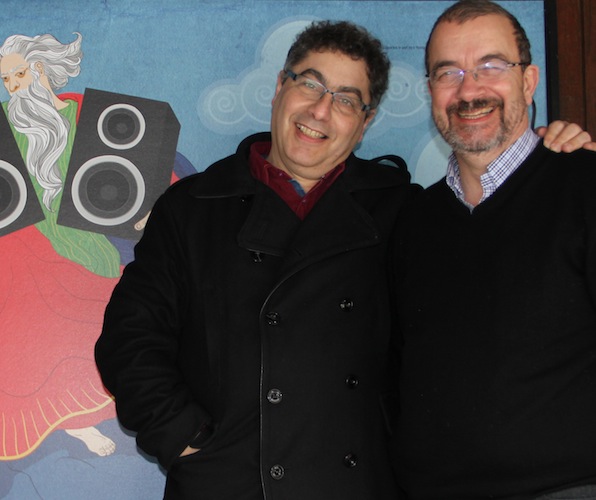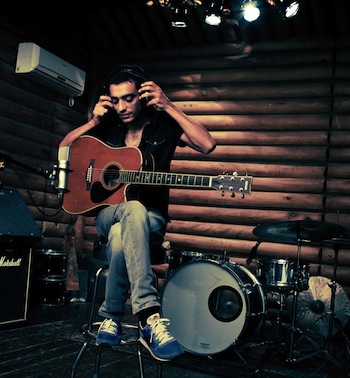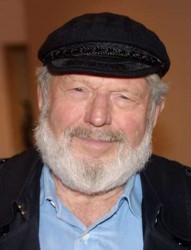Fuse Music Interview: The Boston Jewish Music Festival Returns for Its 5th Year
Boston was once the largest Jewish community in the country without a Jewish music festival — now the five-year-old Boston Jewish Music Festival (BJMF) is one of the most-attended of its kind in the nation.
Boston Jewish Music Festival, February 23 through March 28. (Complete event and venue information can be found at the BJMF website).
By Jason M. Rubin
It sounds like a joke. Two Jews decide to start a music festival, and one says to the other…. Or, Why is this Jewish music festival different from all other Jewish music festivals? Or, how many nerdy Jewish marketing professionals does it take to put on a music festival?
The reality, however, is that where Boston was at one time the largest Jewish community in the country without a Jewish music festival, the five-year-old Boston Jewish Music Festival (BJMF) is now one of the most-attended of its kind in the nation. And it really did spring from the efforts of two guys – one a freelance copywriter and creative director, the other a marketing and public relations maven – who in spite of having different musical tastes, both shared a single vision: to create a festival as diverse and eclectic as…well, as Jewish music itself. Which is where I began my interview with co-founder and executive director Joey Baron.
Arts Fuse: You have music and musicians of many countries represented, including Israel, Russia, Morocco, Cuba, Argentina, and Bosnia. Klezmer doesn’t seem so exotic anymore. So in 2014, what exactly is “Jewish music?”
Joey Baron: An ethnomusicologist would give you a specific answer to that. Unfortunately, I’m not an ethnomusicologist. But I will say that the more we embrace the diversity of Jewish culture, the more interesting musical traditions we find. For example, for many years Israel didn’t honor its Arab roots; instead, it looked to Eastern Europe for its musical traditions. But with the greater acceptance of Mizrahim (Jews from Islamic countries) culture, now you hear the use of ouds in Israeli music. Here in America, we’re so eurocentric in our view of our roots, we forget how broad the Jewish world is – or else we never learned it.
One of the things we don’t want to do is worry if someone leaves one of our performances and asks, “Is this Jewish music?” This year, we’re presenting Peter Himmelman, a fairly mainstream singer/songwriter who to my ears clearly writes from a secular Jewish perspective. If you don’t know he’s Jewish, you might just consider him a good songwriter. Like Leonard Cohen. You don’t have to be Jewish to like Leonard Cohen, but if you are Jewish you listen in a different way.
AF: How did the Boston Jewish Music Festival first come to be?
Baron: I had been doing an annual concert at Temple Aliyah in Needham for several years. As it grew, I began to sense that there was a market for this. I talked with Josh Jacobson, an authority on Jewish choral music who teaches at Northeastern University and is the founder and artistic director of the Zamir Chorale. He put me in touch with Jim Ball, a trained musician who also performs choral music. I come from rock and roll and our musical tastes overlap but also go off in different directions. We met over coffee and both agreed that the San Francisco Jewish Music Festival was the best in the country, so we wanted to model our effort after that, to put together a seven-to 10-day festival rather than a single event.
So we planned it first, then did fundraising for it. Every gift we got, we put down another deposit. Our hunch that the community was hungry for something like this proved correct: we had 5,000 attendees that first year.
AF: Now that the festival is in its fifth year, what has changed most about it?
Baron: One change is that it’s established, there is a large core audience for it. Not just among the people who buy tickets; many different organizations want to work with us because we have a good record of putting tucheses in seats. Last year we worked with the Celebrity Series for our Itzhak Perlman concert. Temples who have seen dwindling numbers for services have been excited to see full houses when they host a performance of ours. In addition, there’s a greater awareness that there’s something called Jewish music in the world. Both Jim and I viewed the festival as something that was important to us as a culture, there’s a greater acceptance that Jewish culture in general has something to offer the community.
I think that lot of people who consider themselves culturally Jewish as opposed to religiously Jewish don’t actually have access to or knowledge of the best in Jewish culture. I think we as organizers and much of our audience struggle with how to hold on to the best of our ethnic heritage without being limited by it. Pete Seeger, who sadly just passed away, was performing Jewish folk songs in the ’50s. Now you only hear them at Jewish summer camps. There are generations that are losing this connection. At the same time, one can listen to and enjoy this music without being Jewish or knowing about Jewish culture. It succeeds purely as entertainment.
AF: The very first performance of the festival this year is by a group called Heartbeat, which works with young Israeli and Palestinian music students. Given the recent efforts at pushing forward the Middle East peace process, this seems like good timing. Might an event like this also contribute to building a groundswell for peace?
Baron: The community can support peace initiatives, but ultimately it is a matter of political statesmanship. The artist’s commitment is always to a better tomorrow. Is Heartbeat going to bring peace? No, but it’s not going to bring war. And that’s progress.
AF: The festival is nearly a month long this year; can you give us a sense of its scope?
Baron: Last year, we had an attendance of over 7,000, — more than 25,000 have enjoyed the BJMF over the past five years. Very few Jewish music festivals are hitting those numbers. We do more than most, and the decentralized approach makes it more accessible. We have performances in nearly two dozen locations this year, from Nashua to Providence. We have something old – Theodore Bikel at the Berklee Performance Center – and something new: Dudu Tassa and the Kuwaitis, one of Israel’s most popular rock stars, at Johnny D’s. We have the Israel Philharmonic and Malachei Mambo. Folk, jazz, vocal, instrumental, east, west, male, female…if it’s in the world of Jewish music, it’s at the BJMF. And sure, plenty of klezmer, too!
Jason M. Rubin has been a professional writer since 1985. He is an award-winning copywriter and a novelist whose first book, The Grave & The Gay, based on a 17th-century English folk ballad, was published in September 2012. He lives in the Boston area and also writes features and CD reviews for Progression magazine.



